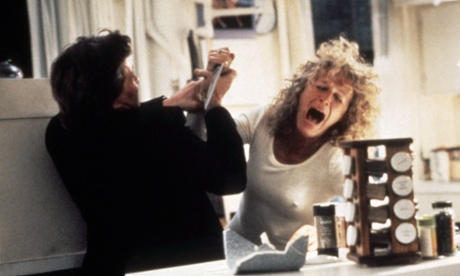Once ubiquitous, the screen sex scene is in deep trouble. Keira Knightley, star of Misbehaviour, Official Secrets and Colette, appears to have driven the final nail in the coffin of the traditional sex scene with recent comments that she will no longer participate in “those horrible sex scenes where you’re all greased up and everybody is grunting”, and that she is not prepared to shoot sex scenes with male directors so as not to “portray the male gaze”.
Knightley’s stance reflects an increasing dissatisfaction with the way film-makers have handled such scenes in films and TV shows. Philippa Lowthorpe, who directed Knightley in Misbehaviour, the 2020 film about feminist protesters who disrupted the Miss World competition in 1970, admires the actor for her comments. “I totally understand where Keira is coming from. Intimate scenes make actors vulnerable by their very nature, so can be – and on many occasions have been – open to a misuse of power by directors.”
Anna Smith, former chair of the London Critics’ Circle and host of the Girls on Film podcast, is similarly supportive. “An actor has every right to weigh up the identity of the director when considering a role with explicit scenes. In comparison, many women request a female doctor for similar reasons to ones that Knightley states – in fact, it is often offered.”
Lowthorpe and Smith agree with Knightley that female directors handle sex scenes differently. Lowthorpe points to the famous sequences in Jane Campion’s The Piano: “The way she filmed Harvey Keitel touching a hole in Holly Hunter’s stocking is so tender yet so suggestive, and the way she filmed their lovemaking was haunting and beautiful.” She adds: “Often male directors are interested in a lot of panting and thrusting. Of course, not all sex scenes directed by men are like this – there are some great exceptions – but sex scenes directed by women are usually far more real and intimate.”
Smith says: “It’s not to say all men are bad at directing sex scenes, it’s more that people often bring their personal gaze to the table – and their own sexual interests. Women on the other hand are more likely to show female pleasure from the point of view of the woman, rather than for pure titillation (though it can certainly be both). And some female directors make a point of more realistic sex scenes so that young viewers aren’t given unrealistic expectations. Many women know all too well what it’s like to go to bed with a man who’s got his sex tips from 80s Hollywood erotica.”
Actors have also become more assertive as to how they are treated on set. In 2016, outrage exploded over the re-emergence of suggestions that sex scenes involving Maria Schneider in Last Tango in Paris were non-consensual, while in 2013 the two leads of Palme d’Or-winning drama Blue Is the Warmest Colour, Adèle Exarchopoulos and Léa Seydoux, criticised the film’s director, Abdellatif Kechiche, for his allegedly “horrible” working methods. Intimacy coordinators are now common on film and TV sets to ensure that issues of consent and exploitation no longer arise.
Vanessa Coffey, an intimacy coordinator whose credits include I Hate Suzie and Fate: The Winx Saga, says an incident involving Knightley while filming the 2007 film Atonement demonstrates the change in attitude on set. In what was considered at the time as an amusing anecdote on The Graham Norton Show, Knightley claims director Joe Wright shouted directions at her during a sex scene with James McAvoy, including an unexpected instruction to “wank him off!” Coffey says: “Today this wouldn’t happen. We would have mapped out exactly what was going to happen choreographically within the scene so that an actor wouldn’t be left in a position of wondering exactly what they needed to do. We would have had in-depth discussions about the scene and its purpose, as well as exactly where body parts were going and what was expected, and a discussion to negotiate the requirements of the actors to ensure they were comfortable with what had been agreed.”
While creatives are often resistant to intimacy coordinators at the outset of production, familiarity with the role’s expertise is helping to build acceptance. “Many (not all!) directors think we are there as the ‘fun police’ or as roadblocks to creativity,” says Coffey, “but once we’re through that initial stage, directors and actors realise we’re there to help craft a beautiful, intimate scene. Just as a director would outsource a fight to a stunt coordinator, we are there to make it look as authentic as possible, while keeping the actors safe.”
Lowthorpe agrees that intimacy coordinators are having a positive effect, citing Bridgerton. “Perhaps this helped safeguard the cast and the directors, and liberate those scenes. Either way, the scenes were really well acted and directed.”
This contrasts strongly with practices in past, largely associated with feature film sets in an era where explicit sex scenes on broadcast TV were nonexistent. In a recent interview with Attitude, Sharon Stone recalled the humiliation of performing topless in her first film, Irreconcilable Differences, in 1984, and hearing another actor shout: “I can’t see her fucking tits.” Now TV shows, including Bridgerton, Normal People, It’s a Sin and I May Destroy You, are hailed for leading the way their responsible approach to filming sex scenes; but, Coffey points out, it is not always 1980s male film directors to blame for problems – citing Ruth Wilson’s decision to leave the TV show The Affair in 2019 after complaining about showrunner Sarah Treem.
All agree that the #MeToo and Time’s Up campaigns have been central to this shift, with Lowthorpe describing #MeToo as “a gamechanger”. Says Coffey: “I don’t think in a post-#MeToo world, a director would dare argue with an actor to do more than they were comfortable with. At the end of the day, it’s their choice what they’re willing to show.” Does this mean that the days are numbered for the sex scene? Coffey is convinced otherwise. “Absolutely not! If anything, we are seeing more sex scenes on our screens – they’re just being better managed.”











